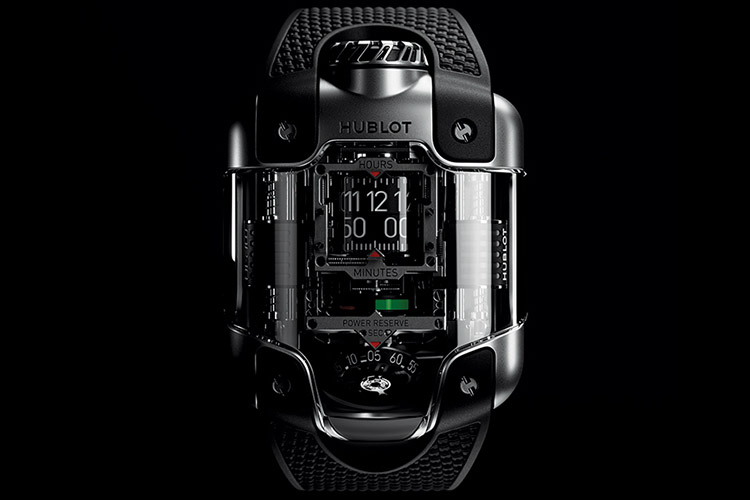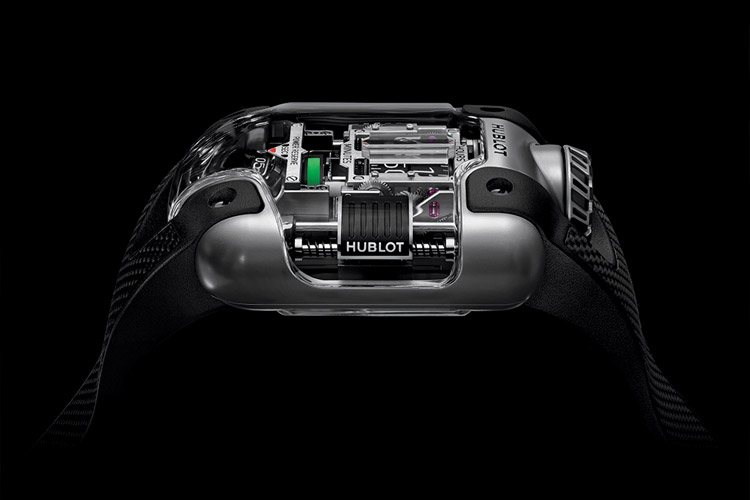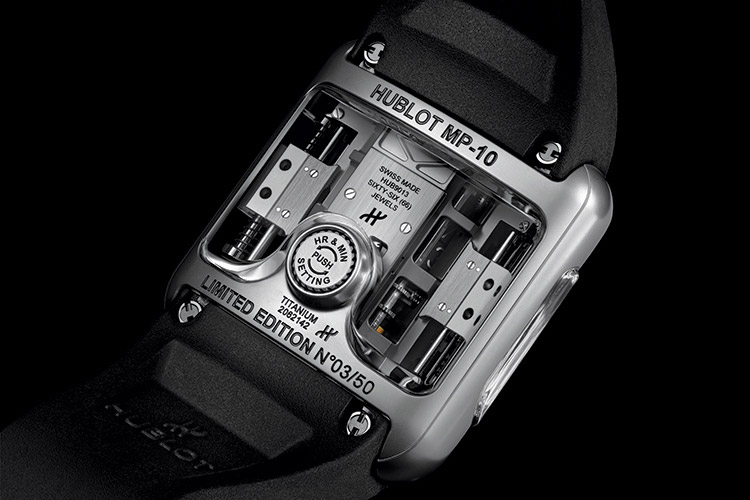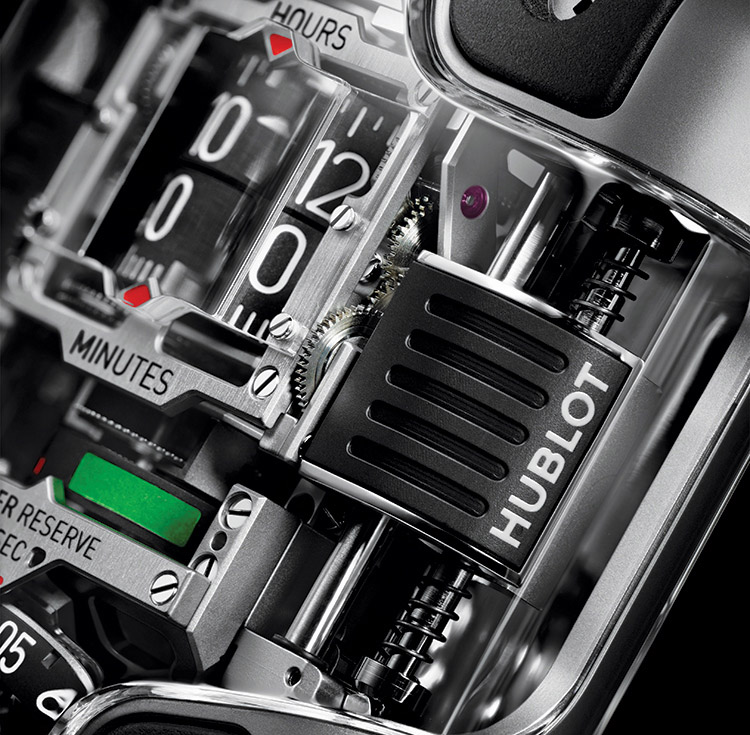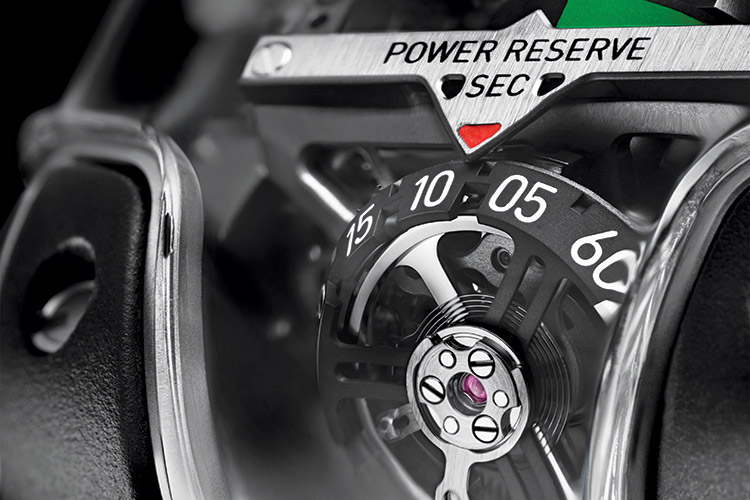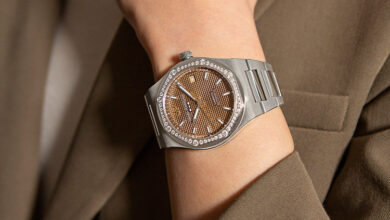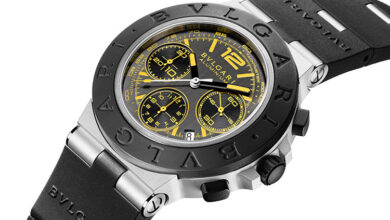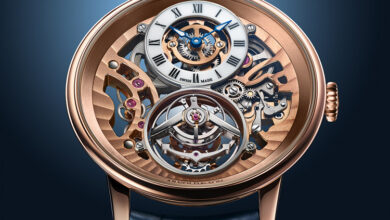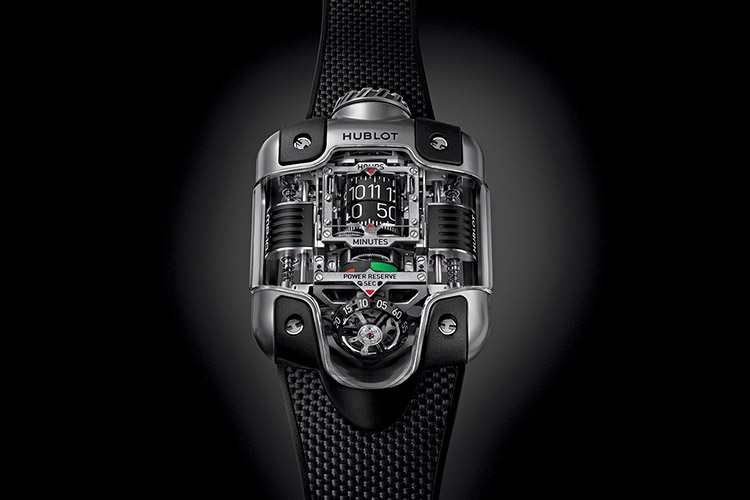
Haute horlogerie marque Hublot has opened a door to the future of watchmaking in its latest Manufacture Piece (MP), the MP-10 Tourbillon Weight Energy System in Titanium. The new timepiece revisits the fundamentals of watchmaking: no dial, hands, or oscillating weight; instead, a roller display, a circular power reserve, and an inclined tourbillon automatic winding by two linear weights comprise the watch
Ricardo Guadalupe, Hublot CEO, explains that for a timepiece to be part of the brand’s MP collection, it must not only reinvent existing complications; it must create something exclusive, invent, build, and open up new avenues in watchmaking R&D. Guadalupe gave the Hublot designers and watchmakers carte blanche, and the MP-10 – a landmark in the history of high watchmaking – is the fruit of their labours.
The announcement of a new Manufacture Piece (MP) by Hublot is always eagerly awaited. This MP-10 Tourbillon Weight Energy System is no exception. The piece is immediately arresting. With its rounded angles, sleek design, and sapphire crystal of an unparalleled complexity, it houses a movement no less sophisticated. A fusion of form and substance, the mechanical and aesthetic power are inseparable – one of the key concepts guiding the MP collections.
And at the point where they intersect, the Manufacture offers a bold reinvention of the classic watchmaking complications. These are avant-garde pieces resolutely disruptive in their movement, display, and complications. But they are neither concepts nor exercises in style. Like all the other MPs, the MP-10 Tourbillon Weight Energy System is a complete, accomplished, and practical watch that will soon adorn the wrists of a select few collectors.
The figures for the timepiece make for impressive reading: 592 components, 5 years of R&D, 2 linear weights, 1 inclined tourbillon, a circular power reserve – all of these for a model to be produced in a limited edition of just 50 pieces.
The MP-10 has no hands. In their place are four constantly rotating displays: the hours and minutes in the upper third of the dial, combined with an invisible magnifying glass; the circular power reserve in the central third, with a very clear green zone and red zone; and the seconds in the lower third that are indicated directly on the tourbillon cage. It is made from monobloc aluminium, suspended and inclined, and a patent application is pending for this unique mechanical configuration.
The piece has no dial: Hublot has fused the calibre with the dial. The movement is the face and soul of the watch. The gaze is drawn directly to the mechanism to read the time. The MP-10 features a highly architectural design and a particularly expressive movement built around volume and depth. Yet, this in no way interferes with reading. Instead, it makes it simpler. The time is read from top to bottom, fluidly and naturally. The power reserve is particularly expressive, with a two-tone disc (red and green) set coaxially to the hours and minutes.
This design eliminates the traditional space constraints, which are usually dictated by a central display in a horizontal plane. The MP-10 can be easily read vertically: hours, minutes, power reserve then seconds. The movement of the eye is fluid and natural. The indications are aligned. They share the same white lacquer typography on black aluminium rollers. For each indication, the current time is read via a red triangular marker.
Reinventing automatic winding, the winding system of the MP-10 follows the same logic. A traditional movement is formed of a flat dial paired with an oscillating weight on the case-back side. However, this type of construction is incompatible with the MP-10. The piece has no dial or hands, it is not flat, and it is read vertically. So, how is it wound?
The engineers at Hublot retained the weight principle but verticalised it, just like the movement, then duplicated it. On either side of the central architecture sit two blocks of white gold, arranged on a vertical axis along which they are free to move.
To prevent them from colliding with the banking, Hublot developed a system of shock absorbers. These two vertical weights engage a rack and are able to wind the movement bidirectionally – an exclusive Hublot development for which a patent is also pending, that gives the MP-10 a power reserve of more than 48 hours. The watch is wound manually via the crown at 12 o’clock, while the time is set using a second crown nestled on the case-back side to preserve the fluidity of the design.
The exterior is on par with the movement. While the case construction is simple (two pieces, middle and case-back in shiny micro-blasted titanium), the sapphire crystal atop it is Hublot’s most complex to date and combines inclined planes on three axes. The same applies to the integrated rubber strap – also the most refined ever designed by the Manufacture … until the next MP.
